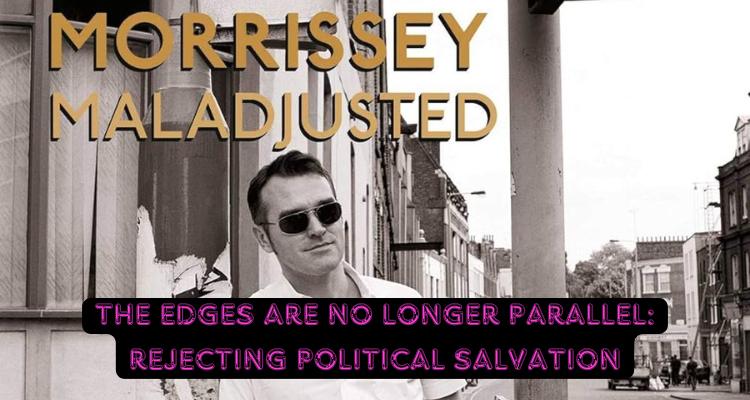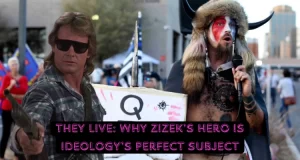By 1997, the hope that once flickered in I Know It’s Gonna Happen Someday had collapsed into disillusionment. The Edges Are No Longer Parallel is a direct response to that collapse, a realization that the structures that once seemed clear-cut—left vs. right, progress vs. stagnation—had blurred into something unrecognizable.
The title itself is a perfect metaphor: the lines no longer align, the path forward is no longer obvious, and political reality refuses to fit into the categories it once did. This isn’t just frustration with politics—it’s a deeper existential crisis about the entire system itself.
By 1997, New Labour had won a historic victory, ending 18 years of Conservative rule. Tony Blair had positioned himself as the leader of a new, modern Britain, selling a progressive vision that captured the optimism of the time. But Morrissey—always skeptical—wasn’t fooled.
The problem wasn’t just that Blair wasn’t truly progressive—it was that he was a symptom of a larger system where all political movements, no matter how radical their rhetoric, eventually get absorbed, diluted, and used to maintain the status quo.
My only mistake is I’m hoping
This line is devastating. It’s not just about personal regret—it’s a philosophical rejection of hope itself.
Žižek, Fantasy, and Embracing Hopelessness
This moment in Morrissey’s career aligns with Žižek’s concept of embracing hopelessness—not as a form of despair, but as a way to escape ideological traps. Žižek argues that hope often functions as a fantasy that prevents real change.
- If we hope that political leaders will bring progress, we remain passive, waiting for someone else to change things.
- If we hope that the system will reform itself, we ignore the reality that it is designed to sustain itself.
- Hope keeps us trapped—it convinces us that things will improve just because they should, rather than forcing us to accept that nothing changes unless it is forced to change.
Morrissey’s break after Maladjusted suggests that he was beginning to realize this.
Instead of investing in traditional political power, he moved away from faith in systems and toward something deeper—a psychoanalytic engagement with identity, nationalism, and the structure of desire. This shift explains his later, controversial support for the nationalist For Britain party.
For Britain, Trump, and Using the System’s Logic Against Itself
Morrissey’s support for For Britain wasn’t just reactionary—it was a rejection of mainstream political parties.
- For Britain wasn’t tied to the establishment—it functioned outside the dominant left/right binary.
- Just as Trump exploited the contradictions of the U.S. system, Morrissey saw nationalism as a tool that could be used against itself.
His thinking wasn’t that different from the logic of left-wing populism:
- If progressives actually joined nationalist parties, they could reclaim British identity from the far-right.
- If political leaders don’t follow the will of their supporters, they will lose power.
- Rather than rejecting nationalism outright, progressives could use it to dismantle the very structures it was meant to uphold.
This is where The Edges Are No Longer Parallel becomes prophetic—it’s about what happens when people realize that mainstream politics cannot save them. Morrissey saw that the old categories—left vs. right, socialist vs. conservative—no longer applied.
Beyond Traditional Politics: Toward the Psychoanalytic
If Maladjusted was Morrissey’s final engagement with “traditional politics”, then his break afterward marks his deeper move into psychoanalytic themes. This transition mirrors something fundamental:
- Traditional politics always gets co-opted—radical movements get absorbed, leaders compromise, and revolutions become brands.
- The only way to truly challenge ideology is to understand the structure of desire itself.
Morrissey, whether consciously or not, seems to recognize this. His work after Maladjusted shifts toward a deeper interrogation of identity, nationalism, and the ways people seek belonging—which I’ll explore in another post.
For now, The Edges Are No Longer Parallel remains a crucial turning point: the moment when Morrissey stopped believing in political solutions altogether.



